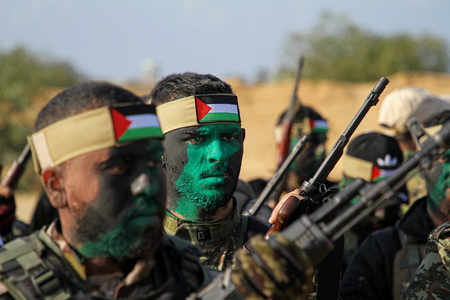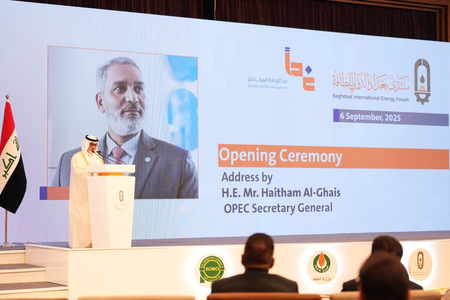
Ottawa, Sep 6 (IANS) Hamas and Hezbollah are “well-established and resourceful organisations” that fall under the ‘Politically Motivated Violent Extremism’ (PMVE) category and sustain their activities through diverse funding channels, according to a report by the Canadian government.
The National Risk Assessment report by the Canadian government defines PMVE as the encouragement of violence to create new political systems or alter existing structures and norms.
While it may include religious aspects, the core focus of actors under this category is political self-determination or representation rather than ethnic or racial supremacy.
“Hamas and Hezbollah are established and well-resourced groups that fall under the PMVE category. These groups use diverse funding methods to sustain their operations, including the abuse of the MSB and banking sectors; use of cryptocurrencies; state financing; abuse of the charitable and NPO sector; and criminal activity,” the report stated.
Canadian authorities observed that several terrorist entities listed under the Criminal Code — including Hamas, Hezbollah, and Khalistani extremist outfits Babbar Khalsa International and the International Sikh Youth Federation — have historically relied on financial support from Canada.
The report noted that although once supported by an extensive fundraising network, these groups now operate with smaller clusters of individuals aligned with their causes, without formal organisational ties.
“Both Hamas and Hezbollah are known to use MSBs, especially IVTS, such as hawalas, to move money across borders. Hezbollah, in particular, is known to use Lebanon’s banking sector to maintain their account holdings,” the report said.
Citing the lawsuit Lelchook v. Societe Generale de Banque au Liban SAL in a New York court, the document highlighted how a now-defunct Lebanese bank provided Hezbollah with financial services, including correspondent banking links in the US.
“Canada’s financial sector may also be exposed to risks emanating from correspondent banking relationships with institutions known or suspected of servicing Hezbollah in Lebanon,” it warned.
Cryptocurrencies have also emerged as a tool for these organisations, though contributions remain relatively low in value, according to the report.
“Both Hamas and Hezbollah use online platforms and social media to solicit donations in the form of cryptocurrencies. Hamas in particular has been an early adapter of cryptocurrencies to raise and move funds, with the group reportedly first beginning to solicit Bitcoin donations in 2019,” it noted.
To liquidate digital assets, Hamas has allegedly turned to exchanges, MSBs, and informal transfer systems in Lebanon, Turkey, and Syria. However, the report admitted that the “full scale and effectiveness” of such crypto fundraising efforts remain unclear.
Another major revenue stream highlighted by the report was state sponsorship, particularly from Iran.
“State sponsorship, particularly from Iran, is a significant source of revenue for Hamas and Hezbollah, which enables them to maintain their activities,” the assessment stated.
It cited a May 2024 advisory by the US Financial Crimes Enforcement Network (FinCEN) that outlined methods used by Iran to evade sanctions and funnel funds to its allies, including the sale of oil and weapons, shell companies, correspondent banking ties, and crypto.
Canada said it has detected similar “Iranian patterns” aiding Hezbollah and Hamas.
The report also pointed out that these groups exploit charitable and non-profit organisations for fundraising.
“Despite these observations, it is estimated that revenue generation through NPO abuse represents a relatively small percentage of operational budgets of terrorist groups overall,” it added, referring to the 2024 Egmont Group overview on typologies of NPO abuse and global financial intelligence cooperation.
The report also mentions that criminal activities, especially drug trafficking, play a major role in Hezbollah’s finances.
“Criminal activity is also a means of financing for PMVE purposes, particularly for Hezbollah, which has strong partnerships with international and domestic OCGs. Hezbollah remains a highly active global player in the cocaine, heroin, fentanyl, and captagon trades, with trafficking networks spanning Latin America, Canada, and the US,” the report revealed.
It added that Hezbollah has also turned to trade-based money laundering.
“FINTRAC has reported that funds suspected of supporting Hezbollah were sent or received related to the used car trade,” the document said.
US officials have documented Hezbollah’s involvement in buying used cars in North America and reselling them in countries such as the UAE, South Africa, Angola, Belgium, the UK, Hong Kong, Tanzania, Kenya, and Yemen, with profits ultimately funnelled back to Lebanon through couriers.
The report specifically flagged the Port of Montreal as a known hub where luxury vehicles are shipped to Lebanon, financially sustaining Hezbollah.
–IANS
int/sd/mr






